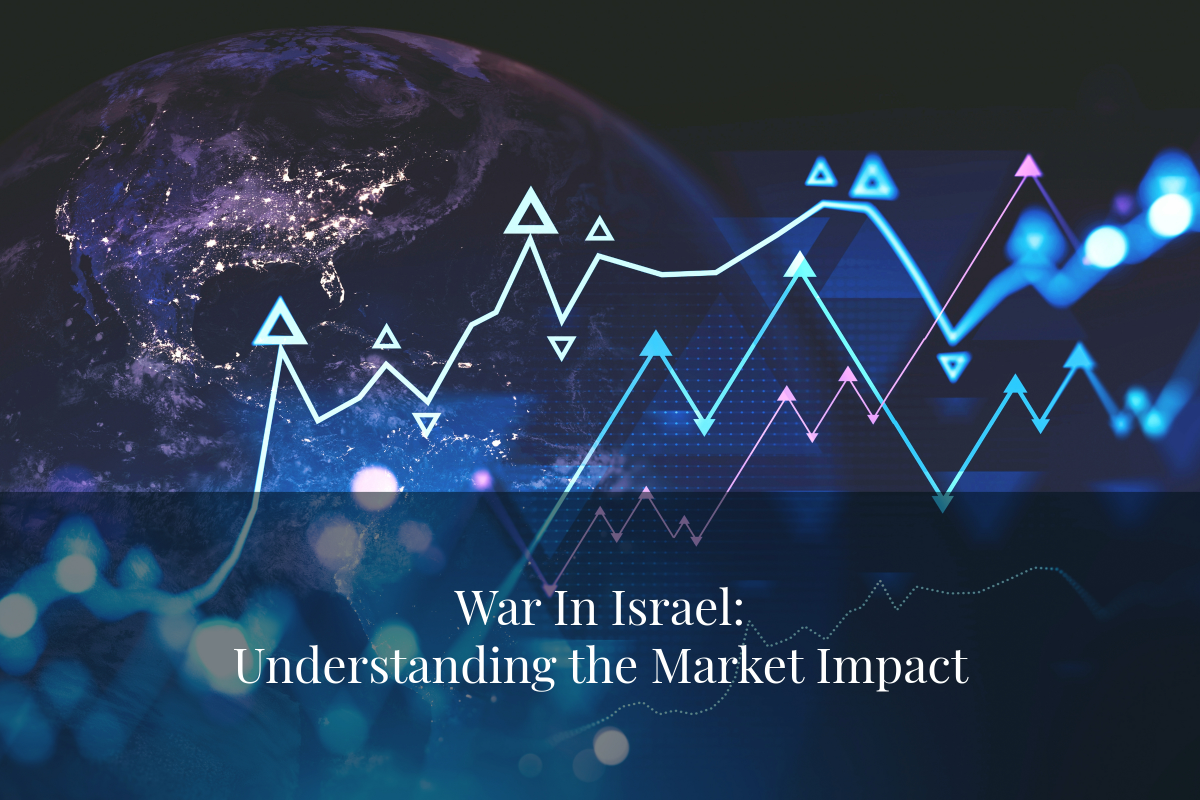Once again, a new chapter of conflict has emerged along the Israeli-Palestinian border in Gaza. Tragically, thousands of lives have been lost in this violence, including men, women, and children on both sides of the symbolic and physical divide. Despite the challenges presented by any armed conflict or emerging humanitarian crisis, for which we hope for a swift remedy, the following discussion aims to concentrate solely on the potential war in Israel market impact resulting from the growing geopolitical instability in this crucial region, which plays a significant role in global energy production.
War in Israel Market Impact and Implications
With the interconnectedness of the world today, instability and unrest in one region can powerfully impact other areas. Let’s review three elements of potential war in Israel market impact:
1. The Possibility of Higher Oil Prices
Hamas is considered a terrorist organization by several countries, including the United States, Israel, the European Union, and others. However, it is important to note that the designation of Hamas as a terrorist organization is a matter of international controversy and political dispute, and opinions on this matter may vary. That said, Hamas is known to be backed by Iran and supported by the Iranian Revolutionary Guard (IRGC), so there are significant concerns that another Iran-backed militia in Lebanon, Hezbollah, could get involved in this conflict. In fact, there have already been isolated flare-ups along Israel’s border with Lebanon.
What does this mean? Well, if the situation escalates, Israel could be in direct conflict with Iran. If that were to happen, Bloomberg Economics estimates oil prices could soar to $150 a barrel. Although heavily sanctioned by the U.S., Iran is a large producer of oil, producing around 3 million barrels per day (bbl/day) about 3.19% of the global supply. Israel, Lebanon, and Gaza only produce about 300,000 bbl/day in total.
2. A Potential Re-Acceleration of Inflation
In the context of the United States, the current situation may exert a significant influence on the ongoing trend of inflation, which has been on the rise recently. Notably, the overall inflation rate in the U.S. reached 3.7% in September, marking the third consecutive increase within as many months. This upturn can be attributed to the already surging energy prices, with gasoline and fuel oil costs surging by 12.9% and 18.4% respectively over the past two months. It’s worth mentioning that, despite this, core inflation (excluding food and energy) witnessed its most modest year-over-year growth since September 2021, dropping to 4.1% last month.
In the event that inflation begins to reaccelerate, the Federal Reserve may consider further rate hikes. Yet, there’s a crucial factor to take into account. The present conflict places immediate stress on both financial markets and economic expansion. Consequently, even with inflation trending higher, the Federal Reserve could contemplate keeping interest rates steady to avert any additional economic deceleration.
The market sentiment appears to align with the notion that interest rates will remain unchanged following the upcoming Federal Reserve meeting in November. An indication of this is seen in the market’s expectations, as the market-implied probability of a rate hike in November dropped to under 14% on the Monday following the weekend attacks. This percentage had stood at nearly 50% at the beginning of September and was at 30% just the week before the violence erupted.
3. Impacted Market Performance and Geopolitical Shockwaves
Investors might naturally pay close attention to the immediate market turbulence triggered by conflicts, but historical data suggests that asset markets frequently see positive returns in the aftermath of geopolitical events. While we are deeply saddened by the unprecedented and distressing circumstances unfolding, we maintain the belief that the markets will display resilience, and maintaining your investments is the most prudent step to take during this period.
Concluding Thoughts on Potential War in Israel Market Impact
As the ongoing conflict continues to evolve, so too might the impact we see in the financial markets. The three potential implications above are a starting point in the conversation, but we understand that you may have concerns or questions related to your own financial situation. Please do not hesitate to reach out to schedule a conversation with a member of our team.





